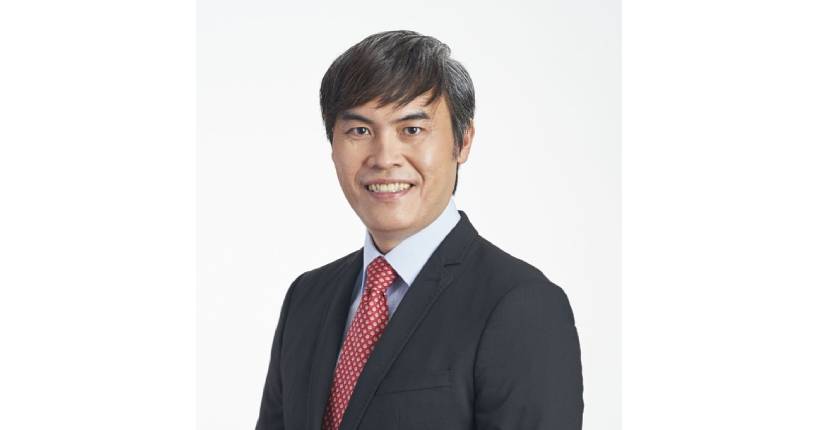Starting on a new career, whether you are a newbie who just graduated and are now just embarking on a new job, or as a middle management staff who’s thinking of changing career midways, always comes with a fair set of challenges and issues. In this career series, we speak with experts in various fields to get their tips on how to ease into a new job, what you should do to excel and how to further your career prospects.
In this fourth interview, we speak to Jeslin Lim, Divisional Manager for HR at Cycle & Carriage Singapore for her views on career tips. Jeslin is a business-focused HR practitioner with more than 10 years in a leadership role. She partners with various business leaders along with their respective leadership teams to develop and execute the organisational and HR strategies to foster growth, drive results and increase organisational effectiveness. Jeslin is certified as a Global Talent Management Leader and in Employer Branding.
1) Share with us what do you do in your work?
My day-to-day work is very exciting and there is never a dull moment. I handle the talent acquisition, learning and development, employee relations and employee operating of the company. There are also employee grievances, disputes, misunderstandings or even certain issues that need to be addressed, and that’s where I step in as well. Last but not least I handle the employee apprehending of the company, so I look at how Cycle & Carriage Singapore is being positioned as the employer of choice and how we can remain to be top of line for candidates looking for their next career option.
2) What are the things to know when a jobseeker starts out on a new career?
Be curious and be inquisitive, having loads of initiative and motivation to do your best and always remain humble. These are skills and mindsets that anybody starting out a new career at any stage of life should be mindful of.
3) What do hiring managers look for in candidate selection?
I can’t speak for all, but I can try to make references from the hiring managers that I have interacted with in my career. Sometimes, hiring managers might not find that a candidate can fit well and that is defined as a culture fit. I think for any candidate who wants to join an organisation, other than the willingness and the desire to do what is on the JD, there are other factors that are important as well. Firstly, whether the person is motivated to do more than what is on the job description, and to always do their best. Secondly, there should always be respect for one another, regardless of the rank or position that anyone holds. Last but not least, we look for collaboration capabilities. It is that teamwork, respect and motivation to collaborate that we look for in a new candidate.
4) How can a new staff excel in the first 100 days of their new role?
My personal motto, whether is it 100 days or 100 months in the job, is to always give your best in your role. There are no shortcuts to doing a good piece of work and always in the first 100 days, take the initiative. Schedule check-ins with your reporting officer. Have a plan of what to do, set certain goals or targets for yourself to achieve or set certain learning journals for yourself. Instead of waiting for instructions or waiting for a target or goals to be given to you, start setting the goals and check in with your reporting officer to ask if these goals are aligned with what they want you to achieve. Last but not least, always give it your best. Only time will tell whether you are doing your best and whether you can excel in your job.
5) How can you make the next career move based on your strengths?
There are 2 factors to be mindful of when making your next career move based on your strengths. Number 1 is of course to know your strengths. Know what are the strengths that you bring to the table. Number 2 would be to find a job or a role that play to your strengths. If you know your strengths, and you know what are your possible limitations, ask yourself whether that limitation is something that you can improve upon. I also suggest to try psychometric profiling and when you have that report, I think that will help provide a very good gauge of knowing what are your strengths and limitations, and what kind of roles might possibly play to your strengths.
6) How can you develop yourself for the next promotion?
Volunteer for any tasks, assignments or projects that come your way or that may not come your way. Be curious and ask about all these extra tasks and projects. If your superior or boss comes around looking for somebody who might have a little bit of bandwidth to do that piece of additional work, volunteer for it. Be prepared and always be willing to spend additional time, effort and commitment to do more than what’s on your plate. This will probably set you apart for the promotion. What sets one person apart from another would be the character, motivation and desire to want to do a good job and maintain doing a good job to the best. If you excel at doing your best, remain humble and work as a team player, I think for any bosses it’s very difficult to not consider this person for the next promotion.
7) How can leaders and managers become better coaches?
I’m not an expert in this topic but I can try to share some of my tips and insights. I think one of the skills that is really important that anybody, whether as a leader or a manager can benefit from, is active listening. Active listening is really about taking down notes, asking questions to clarify understandings, and moving towards a certain set of options to consider. Active listening can play a part to help the staff to identify what is the core issue amidst the noise and then work towards options that he or she feels confident about taking and doing something about. That’s taking an active step to help the individual to become better, and this is something that we all can benefit from.
8) How has job search changed in the new normal and what can job seekers do to enhance their chances of landing a job?
I think there are certain things that have changed but certain things remain of importance. For example, one of the things that is still important is to do your research on the company, especially now that there’s more information out there in social media. Secondly, as a lot of interviews nowadays are going virtual, being adequately prepared is important. Be punctual for the interview, and be early if you can; if it is a virtual interview, sign in ahead of time to test out technical difficulties and check the sound system. Invest in a good earpiece or headphone and test out the sound first before you attend the interview. Always maintain eye contact even if it’s a virtual interview, and try to minimise any distraction in the room so that you can give your fullest attention to the session. These are some of the things that you can do to prepare yourself for an interview and up your chances of landing the job.
9) How to handle stress in the new normal?
There are many ways to relieve or handle stress. What is important is to always have good stress management, whether it’s through exercise, having a good laugh or watching your favourite movie; being absorbed in the movie or in a good book you are reading can help relieve stress. It’s also important to step away from whatever is causing the stress, have your me-time or a time out. These are techniques that anybody can learn. What is the one thing we should not do is to bottle up the stress. When we bottle up the stress, it doesn’t get relieved and can create unhealthy results. So know when to step away from whatever is causing the stress, and remember the phrase from Frozen: “let it go, let it go!”.
Watch out for our next Career Advice Series featuring more expert advice!
This Career Advice Series and its accompanying interview videos is brought to you by SAFRA with the support of people analytics expert IDENTI3. Visit www.Identi3profiling.com for more information.







